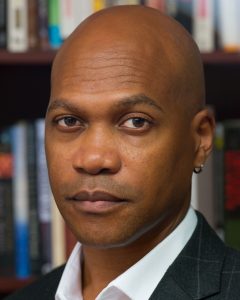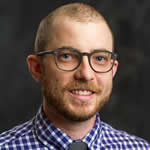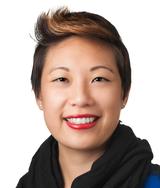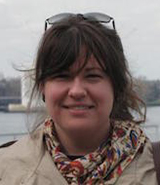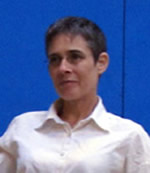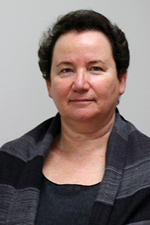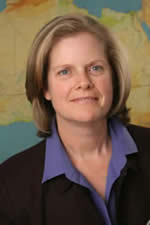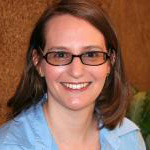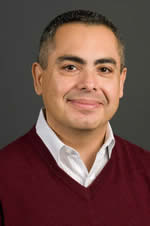The Sexualities Project at Northwestern (SPAN) awarded funds to Northwestern-affiliated faculty through an annual competitive process. Awards were based on evaluations provided by expert external reviewers.
Funded Projects By Year: 2021-22 | 2020-21 | 2019-20 | 2018-19 | 2017-18 | 2016-17 | 2015-16 | 2014-15 | 2013-14 | 2012-13 | 2011-12 | 2010-11
2021-22
 |
Charles McDonald (Spanish & Portuguese; Sara Ranisvljevic Post-Doctoral Fellow in Judeo-Spanish Studies) charles.mcdonald@northwestern.edu “Queer Nightlife Ecologies: Arts of the Underground in the Era of COVID” |
2020-21
| Jeremy Birnholtz (Communication Studies) “How MSM Compose and Assess Location-Aware Dating/Hookup App Profiles in Tier 2 Cities in Post-377 India” |
|
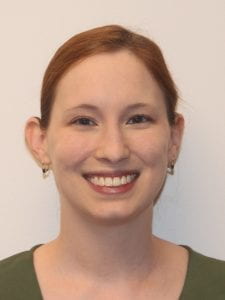 |
Christina Dyar (Institute for Sexual and Gender Minority Health and Wellbeing) dyar.christina@northwestern.edu“Transgender and Gender Diverse Individuals’ Daily Experiences of Stigma: A Daily Diary Study”Transgender and gender diverse individuals (TGD; i.e., individuals whose gender differs from assigned sex at birth, including transgender men, transgender women, and many other individuals who do not identify with binary notions of gender) are at increased risk for negative mental health outcomes, including anxiety, depression, suicidality, and substance use disorders, compared to cisgender individuals. These disparities highlight the need to understand and reduce the prevalence of negative mental health outcomes among the TGD population, but limitations of existing research hinder efforts to do so. First, research on risk factors for negative mental health outcomes among TGD has been almost exclusively cross-sectional. Second, TGD are overwhelmingly treated as a homogeneous group despite preliminary evidence that the experiences of TGD may differ based on sex assigned at birth and between those with binary compared to non-binary gender identities. The proposed study aims to utilize daily diary methodology to broaden our understanding of factors that contribute to anxiety, depression, and problematic substance use on a day to day basis among TGD, while attending to subpopulation differences. |
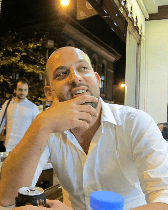 |
Emrah Yildiz (Anthropology) eyildiz@northwestern.edu“Migrant Sexualities, Queer Travelers: Iranian Translocations”Migrant Sexualities, Queer Travelers: Iranian Translocations tracks the highly unpredictable and far from liberating journeys of Iranian asylum-seekers such as those of Karim and Sahand on a historically contingent and interarticulating axis of liberal legality and modern sexuality. More specifically I focus on the process of waiting and assessment whereby the asylum seekers are asked to substantiate their claims to the “right” to move to a third country and the UN officials and NGO workers and expert witness anthropologists to test, verify, and qualify the claims of life-threatening discrimination and/or the danger of prosecution—clauses that need be established for granting asylum. The broader project argues that through this transitionary period of the journey in Turkey and the politics of (mis)recognition that underwrites this duration results with testimonies that constitute legal grounds for asylum with a twist: a distinctly Iranian cartography of sexuality is first rendered intelligible in terms of international asylum law by transforming Iranian nationals’ testimonies of discrimination into confessions of “sexuality” in Iran. The project grapples with the fact that for these cartographies of sexuality to serve as techniques of mobility for Iranians, their stories, subjectivities and bodies have to reproduce inadvertently a movement of sexual liberation from Iran to Germany, revealing that gender non-conformity and strict secularity help asylum-seekers approved as “gay enough.” While the stories of individual trajectories vary case by case, on the broader cartographic production, which is spun in no small part due to the movements of Iranian asylum-seekers, Iran emerges as the hell of queer sexualities and genders, while Germany is confirmed as their putative heaven. Based on data collected by participant observation, discursive analysis, and in-depth interviews with LGBT and queer refugees, asylum lawyers, and staff members of international asylum organizations and their domestic implementing partners in resettlement, Iranian Translocations aims to develop the journey as a methodological tool to study queer travelers and their migrant sexualities. Iranian Translocations engages with queer migration studies, queer diasporic critique and critical race and feminist scholarship in order to examine the historical and contemporary conditions for queer asylum at the intersection of sexuality and mobility. The project attends to the formation of “gender and sexuality” as categories of practice for Iranian asylum seekers, UNHCR and NGO workers, political activists and allies in Turkey, while also paying attention to the ways in which race, class, and nationality articulate with studies of mobility and those of gender and sexuality alike. If one major question that animates this project on Iranian asylum-seekers’ journeys is what studies of mobility have to contribute to historical and anthropological studies of gender and sexuality, the other is what kind of new analytical ground studies of gender and sexuality could open up in anthropology of mobility, migration and transnationalism. |
2019-20
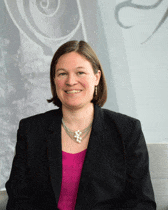 |
Christine Percheski (Sociology) c-percheski@northwestern.edu Co-PI: Tony Silva”Age Discordant Partnerships and Their Associations with Sexual Identity, Partnership History, Fertility, and Social Attitudes”In popular discourse, men and women with much younger partners are referred to “daddies” and “cougars,” respectively. Yet there is little scholarly examination of individuals in age-discordant partnerships, that is partnerships with large (8+ years) age differences between partners. What literature exists has mostly examined status-related and demographic characteristics, such as income, education, physical attractiveness, and immigration status. Moreover, this literature has almost exclusively focused on married man-woman couples. Little is known about the associations between age-discordant partnerships and sexual identity, sexual history, fertility, and related social attitudes. In this project, we propose to use publicly-available data from the American Community Survey (ACS) and restricted data from the National Survey of Family Growth (NSFG) to examine a series of interrelated questions about age-discordant couples. First, we will calculate national estimates(using ACS data)on the prevalence of age-discordant and age-concordant partnerships by partnership type(two women, two men, woman/man partners) and marital status (married/unmarried). Second, we will use restricted NSFG data to examine sexual identity and sexual partner/marital history for age-concordant and age-discordant partnerships by partnership type. Additionally, we will use NSFG data to examine the association between relationship type, age-discordance, and fertility; fertility intentions; and attitudes about childrearing and masculinity. Doing so would allow us to investigate a population that is widely discussed in the media, mostly inaccurately, but about which little research has been conducted. |
 |
Aymar Jean Christian (Communication Studies) aymar.jean@northwestern.edu “Analysing Queer Research and Development” Through OTV | Open Television I have spent four years investigating the possibility of queer TV development and distribution through the web. In addition to a number of industry accolades, the project has garnered over 1 million plays on Vimeo; thousands of fans in Chicago’s queer community; and dozens of pilots, series and works of video art from Chicago’s queer artists who engage intersectionality. This proposal seeks funds to transcribe and code interviews with artists about the queer development process and subtitle their series for broader accessibility. |
2018-19
| Jeremy Birnholtz (Communication Studies) “Follow Me! A Content Analysis of Instagram Posts By Young Gay and Bisexual Male ‘Shoutout’ Recipients” |
|
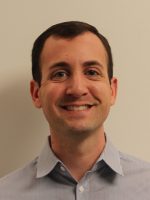 |
Brian Feinstein (Institute for Sexual and Gender Minority Health and Wellbeing) brian.feinstein@northwestern.edu “Bisexual visibility: Understanding motivations, strategies, and perceived success across contexts”Bisexual individuals are at increased risk for negative mental health outcomes compared to both heterosexual and gay/lesbian individuals. These disparities are largely due to the unique stressors they experience. Further, many people do not even recognize bisexuality as a legitimate sexual orientation (e.g., they view it as experimental or transitional), making it effectively invisible in society. The invisibility of bisexuality is of great concern to bisexual individuals, but very little is known about if and how they attempt to gain visibility. The proposed project aims to advance our understanding of bisexual individuals’ attempts to make their bisexuality visible (referred to as bi-visibility attempts). This will be accomplished through two complementary studies. First, a survey study will be conducted to examine diverse aspects of bi-visibility attempts (e.g., frequency of using different strategies in different contexts, motivations, perceptions of the extent to which they successfully communicate one’s bisexuality). These data will be used to examine associations between bi-visibility attempts and bisexual-specific stressors, dimensions of bisexual identity, and mental health. Then, a 28-day diary study will be conducted to examine bi-visibility attempts in bisexual individuals’ day-to-day lives. Examining bi-visibility attempts close to their occurrence will lead to a better understanding of their antecedents and consequences. The proposed project will advance our understanding of bisexual individuals’ unique experiences seeking visibility and how they relate to other aspects of identity, stigma, and mental health. These data will be used to inform a grant proposal to develop an intervention focused on helping bisexual individuals navigate the challenges of seeking visibility and cope with the stressors that visibility can expose them to. |
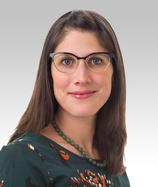 |
Amy Johnson (Pediatrics, Feinberg School of Medicine) amy.johnson@northwestern.edu Co-PIs: Lisa Kuhns, Robert Garofalo “Informing HIV-prevention intervention strategies for young transgender women”Young transgender women (YTW), aged 18-29, are a key population at high risk of HIV infection, with HIV prevalence estimates among urban YTW ranging from 19-22%. Pre-exposure prophylaxis (PrEP) is an efficacious biomedical HIV prevention strategy for those at risk for HIV infection, including YTW. The limited studies done to date suggest initiation of PrEP among YTW is alarmingly low, given their HIV risk profiles. There is an urgent need to develop intervention strategies to increase uptake of biomedical HIV prevention among YTW. Few studies have investigated the barriers and facilitators to PrEP uptake among YTW. To develop salient intervention content, we seek to document and explore real life experiences and “lessons learned” among YTW to inform, motivate and develop skills for use of PrEP among the highest risk individuals. Using qualitative and participatory methods we will conduct informant interviews and focus groups to: 1) describe PrEP experiences among a diverse sample of YTW to inform intervention curriculum development; and 2) develop intervention content and strategic approaches to promote PrEP awareness and uptake among YTW. Data will be analyzed using content analysis, employing both inductive and deductive approaches to identify emergent themes or trends from interview transcripts. Results will rapidly be applied to develop intervention content and apply for future funding to support the initial evaluation of the developed intervention. |
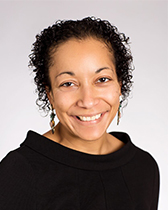 |
Jennifer Nash (African American Studies/ Gender & Sexuality Studies) jennifer.nash@northwestern.edu “The Blackness of ‘Breast is Best’”My proposed project, “The Blackness of ‘Breast is Best,’” the first chapter of my new book project, Year One: Black Women and the Politics of Motherhood, explores black women’s baby-feeding practices through a social and cultural lens. I seek to understand black women’s decisions about baby feeding (a term I use to capture the variety of choices parents might make surrounding nutrition including breastfeeding, supplemented breastfeeding, breastpumping, formulafeeding, and purchased breast milk) and to understand how those decisions are made, inhabited, and experienced in a moment when black women’s non-breastfeeding has been treated as a social problem, and in which black women’s bodies have been again imagined as public health crisis. It is my contention that centering black maternal practices in the interdisciplinary project of sexuality studies necessarily transforms the field itself, placing at the center its still far under-studied subjects—black women—and broadening the scope of the practices, relationalities, and intimacies that are considered “sexual.” In other words, while feminist scholars have long considered the erotic, affective, material, economic, and material experiences of motherhood as part of women’s sexual lives (and have considered the decision not to biologically mother as part of women’s sexual lives), sexuality studies, as a field, has largely elided motherhood as sexual practice. Questions about black women’s reproductive decision making, practices, and choices, then, are bound up with black women’s erotic self-determination and sexual freedom. |
2017-18
| Jeremy Birnholtz (Communication Studies)
“Identity, Attraction and Trust: How MSM Compose and Assess Location-Aware Dating/Hookup App Profiles in Mumbai” |
|
| Jillana Enteen (Gender and Sexuality Studies / Asian American Studies) J-enteen@northwestern.edu “Transitioning in Thailand: Medical Travel for Trans* Surgeries in Bangkok” Not only has Thailand garnered a high profile from the onset of the burgeoning medical travel market, it remains of central importance in the future. “Transitioning in Thailand: Medical Travel for Trans* Surgeries in Bangkok” allows for the creation of a sustainable database to house an updated website archive of the sex/gender-related sites created by Thais, catalogued since 2004, as well as add to the Thai voices speaking of these practices through a series of interviews with Thai surgeons, webhosts, service providers, and officials in the industry from related government and non-government organizations in Thailand. This unique collection of websites and Thai voices provides a sustained archive of the trans*-related medical travel industry in Thailand for non-Thais since 1997. As a result, “Transitioning in Thailand: Medical Travel for Trans* Surgeries in Bangkok” scrutinizes the uneven cross-cultural assumptions concerning gender and sex, labor and exotism, tourism and surgical skill, health-care privatization and access, choice, cross-border medical and political understandings, and the uneven flows of global capital. With this updated database, I theorize, without simplistic generalizations, the fluency of Thais to speak to both the needs and assumptions of their culture, historical practices, and surgical innovations and to the World Professional Association of Transgender Health (WPATH) as well as the regulations and expectations of Western European and North American (WENA) audiences. |
|
| E. Patrick Johnson (African American Studies / Performance Studies) e-johnson10@northwestern.edu “Making Sweet Tea Documentary Film” Making Sweet Tea is a feature-length experimental/ethnographic film based on my book Sweet Tea: Black Gay Men of the South—An Oral History (2008). The film is an attempt to bring an ethnographic and social scientific lens to the study of Black gay men from the South by employing unconventional and multimodal representational genres such as theater and film. It is also an attempt to render the story of these black gay men’s lives through a careful representation of how the ethnographer approached interviewing them, crafted a monograph based on those interviews, and translated that qualitative data to the stage. This film is both an example of producing scholarship for larger public audiences and of demonstrating the processes that go into unconventional forms of scholarly knowledge production in an attempt to humanize the stories of these men and highlight the links between the arts/humanities and the qualitative social sciences. |
|
| Abram J. Lewis (Gender and Sexuality Studies / History) Abram.lewis@northwestern.edu “Historicizing ‘Trans’ within and beyond the LGBT Nonprofit Sector” Across scholarship, law, medicine, and popular culture, “gender” and “sexuality” are overwhelmingly viewed as discrete categories. However, many LGBT scholars agree that the decisiveness with which we make this distinction today is a relatively recent development. Trans studies scholars in particular have argued that these categories became more decisively distinguished with the emergence of “transgender” as a new umbrella term in the early 1990s. Echoing historians of sexuality, they point out that the category “gay” was once more widely understood to include nonnormative gender forms; however, the “mainstreaming” of lesbian and gay politics since the 1970s saw growing efforts to bolster the public respectability of LGB issues by distancing them from issues of gender nonconformity. This in turn set the scene for the emergence of a new movement organized specifically around issues of gender nonconformity, which, ironically, affirmed the very distinction initially used to disavow those issues. Collectively, there is a broad scholarly consensus that between the post-Stonewall period and the advent of the transgender movement, activists played a central role in renegotiating and remapping social meanings around sexuality and gender. However, virtually no empirical research has examined specifically how and where these negotiations took place, what they looked like, or what their effects were at the time. Drawing from archival and oral history research, this project will detail how sexual and gender minority activists discursively disarticulated—or refused to disarticulate—gender nonconformity from minority sexuality during these decades. This project will not only enhance understandings of the historical conditions that eventually produced the category “transgender,” it will also provide a more recent history of the construction of the category “sexuality,” particularly as it has been shaped by homosexuality’s institutionalization in the nonprofit sector since the 1970s. |
|
| Kathryn Macapagal (Medical Social Sciences) kathryn.macapagal@northwestern.edu “Hookup app use and sexual behavior among adolescent men who have sex with men” Co-Investigators: David Moskowitz (Medical Social Sciences), Jeremy Birnholtz (Communication Studies), and Brian Mustanski (Medical Social Sciences) Geosocial networking applications (‘hookup apps’) to meet men for sex are widely used among men who have sex with men (MSM) in the United States. To date, however, research on MSM’s use of these technologies has been conducted exclusively with adult samples, perhaps in part because users are typically required by apps’ terms of service (TOS) to be over age 18 and because of researcher reluctance to conduct sex research with minor adolescents. As such, it is not known whether minor adolescent MSM (AMSM) also use these apps to meet sex partners. Exploratory research in this area is needed given that AMSM’s use of these apps poses various ethical, legal, and sexual health concerns (e.g., violations of apps’ TOS agreements, inability to legally consent to sex with partners over 18, risk of acquiring HIV/STIs). The proposed study will recruit 400 sexually experienced adolescent MSM who will complete online survey questions assessing their use of MSM-specific hookup apps (e.g., Grindr), app-related sexual behaviors, and sexual partner characteristics. Then, a subset of 75 participants who reported having had sex with partners met through a hookup app will be invited to participate in an online focus group to explore app use and sexual behavior in more depth, as well as investigate how AMSM present themselves in their online profiles (e.g., how old do they say they are), negotiate meeting partners for sex, ascertain their safety in these sexual encounters, and navigate conversations about consent and HIV/STI prevention with these partners. Findings from this project will establish foundational knowledge on AMSM’s use of hookup apps to meet men for sex and can guide sexual health education and HIV prevention efforts for these youth. |
|
| Erin Moore (Buffett Institute for Global Studies) erin.moore@northwestern.edu “Women Who Pay Their Own Brideprice? The Gendered Politics of Intimate Exchange in Uganda” Many women’s rights activists in Uganda and internationally condemn bridewealth for treating women as objects of exchange. At the same time, young people in Kampala, Uganda’s capital and largest city, are remaking the practice into spectacles of conspicuous consumption that require pooling resources from kith and kin. In many cases, brides end up amassing their own bridewealth. This project explores how young people are reinterpreting value, romance, sexuality, and the making of tradition through kwanjula parties (literally “introduction,” or bridewealth exchange) and will reopen longstanding Africanist questions about the meaning of marriage payments. Ten weeks of ethnographic research will include observations at kwanjula ceremonies; interviews with the producers of the reality television show Empeta, which documents lavish kwanjulas; observations of “sexual preparedness trainings” at Uganda’s wedding expos; focus groups with young people from different socioeconomic strata regarding their marriage aspirations and reproductive health; and focus groups with LGBTQI activists on their relationship to this longstanding tradition. Together with an exegetical reading of early missionary and anthropological writings on bridewealth in East Africa, this project will show how globalizing sexual rights discourses converge with the intimate practices of urban youth to shift the very terms of sexual-economic exchange in Uganda. |
2016-17
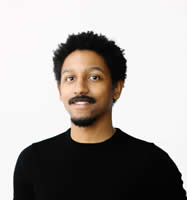 |
Aymar Jean Christian (Communication Studies) aymar.jean@northwestern.edu “Open TV beta: Developing and Analyzing Queer TV Reception Online.” What does an open television network look like? Launched in March 2015, the Open TV beta platform develops television from the bottom-up, using web distribution to incubate stories by emerging performance, video and community-based artists. The research project employs “networked” (digital, peer-to‐peer) distribution to understand and critique heretofore hidden practices of “network” (linear, business‐to-business) development, including pilot and series development, audience engagement and sponsorship. It interrogates traditional media practices through the development of noncommercial works by artists corporate cable and web TV networks marginalize, primarily queer, trans- and cis- women and people of color. The persistent inequality in creative industries results not only in stilted mainstream entertainment but also a rich, under-explored wealth of diverse artistry already moving forward in alternative spaces. By showcasing underrepresented arts and artists through more open platforms online, Open TV seeks deeper understanding of – and consistent audiences for – queer, feminist and racially sincere arts, television and film distribution. |
2015-16
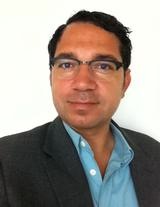 |
George J. Greene (Medical Social Sciences) George-Greene@northwestern.edu “Engaging Parents of LGBT Youth in Adolescent Sexual Health Research: Preliminary Feasibility and Acceptability Studies.” Lesbian, gay, bisexual and transgender (LGBT) adolescents experience significant sexual and reproductive health disparities. Impacted by social determinants of health at multiple ecological levels, LGBT youth frequently lack resources that promote sexual health across various influential settings, including family and peer contexts, schools, and communities. Although no parent-based sexual health interventions exist for LGBT youth and their parents, a growing area of research has focused on parent-based interventions among the general population to improve health communication and ultimately reduce adolescent sexual risk behaviors. Drawing from this literature, the long-term goal of this program of research is to improve sexual and reproductive health among LGBT youth by developing and evaluating a parent-based sexual health intervention tailored to the unique developmental and cultural experiences of these families. The goal of the current proposal is to conduct formative research to inform the development of a parent-based intervention. Specifically, this research will examine the feasibility and acceptability of adapting the sexual health intervention, “Queer Sex Ed” (QSE), as a parent-based intervention to promote adolescent health. In the proposed study, interviews (n=50) and focus groups (n=4 to 6; 60 individuals) will be conducted with racially/ethnically diverse parents of LGBT youth (13-20 year old). Key innovations of this project include the focus on parents of LGBT adolescents, as well as the focus on examining the potential of Internet-based intervention delivery. When taken together, the QSE intervention may have the potential for low dose, low barrier, and low cost delivery to improve health equity among LGBT youth who are negatively impacted by unequal access to appropriate sexual health resources. |
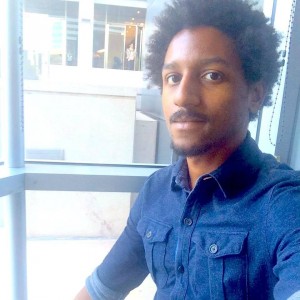 |
Aymar Jean Christian (Communication Studies) aymar.jean@northwestern.edu “Open TV beta: Investigating Queer TV Distribution through Research Creation.” What does an open television network look like? Launched in March 2015, the Open TV beta platform develops television from the bottom-up, using web distribution to incubate stories by emerging performance, video and community-based artists. The research project employs “networked” (digital, peer-to‐peer) distribution to understand and critique heretofore hidden practices of “network” (linear, business‐to-business) development, including pilot and series development, audience engagement and sponsorship. It interrogates traditional media practices through the development of noncommercial works by artists corporate cable and web TV networks marginalize, primarily queer, trans- and cis- women and people of color. The persistent inequality in creative industries results not only in stilted mainstream entertainment but also a rich, under-explored wealth of diverse artistry already moving forward in alternative spaces. By showcasing underrepresented arts and artists through more open platforms online, Open TV seeks deeper understanding of – and consistent audiences for – queer, feminist and racially sincere arts, television and film distribution. |
2014-15
 |
Jillana Enteen (Gender & Sexuality Studies) J-Enteen@Northwestern.edu “Transextions: Complexities of GRS in Thailand” On February 2014 in Bangkok, WPATH President Lin Fraser welcomed over 450 delegates: “This is the first time that WPATH has convened outside of WENA (Western Europe, North America), and we couldn’t have found a more lovely location. . . Welcome to Bangkok and the WPATH 23rd Symposium. Learn and enjoy!” Bangkok has moved from an exotic tourist destination with a burgeoning medical tourism industry expert in the umbrella areas of Gender Reassignment Surgeries (GRS) to, as of this meeting, a center for Transgender knowledge production, site of key discussions for future standards of care, and a showcase for innovative surgical practices. As Fraser states, Bangkok has moved from margin to center– reframed for a non-western-centered, rigorous, yet “lovely” location. “Transextions: Complexities of GRS in Thailand,” my 2014-2015 SPAN project, takes as essential the element of trans in GRS surgical practices: “trans” theories suggest crucial ways of thinking through the circumstances undergirding standardizing local medical practices, transnational travel, the production of medical tourism, issues of translation, gender expression, international communication, and the platform upon which this has created transnational travel for trans-related surgeries beyond WENA: websites produced in Thailand for westerners. As my earlier work has shown, Thailand’s medical tourism industry has changed remarkably over the last 15 years, yet it is created as products available in Thailand for international consumption via internet communication in ways that reflect Thai notions of “trans” as body modification, Thai surgical practices, Thai understandings of bodies in transition and translation, and western notions of GRSrelated surgeries. Moreover, nuanced cultural interpretations are inherent to the production of websites and practices by these surgeons. The combination of web-cached database collection and interviews with Thais involved in the surgery, promotion and maintenance of this industry sets the stage for the work I propose during a 2014-2015 SPAN grant. For “Transextions: Complexities of GRS in Thailand” a “trans framework,” focusing on complexities and ways of viewing differently, suggests thinking through the circumstances apparent when considering nonwestern practices that concurrently consider transnational forces at work in dynamic, non-isolatable, and non-predetermined arrangements. Trans theory challenges “the” binary sex/gender system, opening us to necessarily querying how sex/gender systems operate rendering visible new binary oppositions, social constraints, opportunities and inequities. |
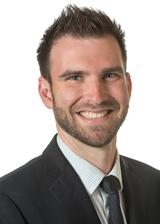 |
Michael E. Newcomb (Medical Social Sciences) Newcomb@northwestern.edu “Strengthening Same-Sex Couples through Relationship Education” Lesbian, gay, and bisexual (LGB) individuals are disproportionately burdened with mental and physical health problems. Research on heterosexuals has detailed the various long-term mental and physical health benefits of healthy romantic relationships. Although same-sex relationships have been found to be characterized by similar levels of intimacy and companionship, same-sex couples break up faster and more often than do married male-female couples, most likely due to elevated societal stressors experienced by these couples. Relationship education represents a growing field of services with demonstrated positive effects on the physical and emotional health of heterosexuals in relationships, but most same-sex couples do not receive these services due to lack of accessibility and inadequate adaptation of intervention content to same-sex couples’ unique experiences. The Strengthening Same-Sex Relationships (SSSR) program is a group-based relationship education program (6-7 couples/group) that addresses both: 1) skills to build couple adaptive processes important to heterosexual and same-sex couples; and 2) unique stressors that disproportionately burden same-sex couples. To date, two small formative studies have been conducted to assess feasibility, acceptability and to refine program components. The overarching goal of this proposal is to establish preliminary efficacy of SSSR for male and female same-sex couples by conducting a small randomized controlled trial (RCT) implemented in the community. This study will be the first large enough to estimate intervention effects (N=70 couples). Further, the intervention will be delivered in the community, which will improve diversity in sample composition and increase knowledge of SSSR’s sustainability. Couples will be recruited in the community and through social media advertisement, and each eligible couple will be randomly assigned to immediate intervention or a waitlist control condition. Analyses will be conducted with Hierarchical Linear Modeling and will assess treatment effects on relationship quality, mental health, substance use, sexual health, and indicators of risk for obesity and cardiovascular disease. Results will inform treatment refinement and grant applications to fund a larger-scale RCT. |
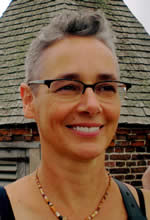 |
Mary Weismantel (Anthropology / Gender & Sexuality Studies) Mjweis@gmail.com “The Moche Sex Pots Project” My project on sexual themes in Moche ceramic art, which will result in a book and a website, sits at the confluence of two fields, PreColumbian Studies and Sexuality Studies, and will make substantial and novel contributions to both. Moche ceramics, produced on the North Coast of Peru in the first millennium A.D., are unquestionably among the finest ceramics ever made in the ancient Americas; am Moche artists created hundreds – perhaps thousands – of detailed effigies of sex acts and sex organs. Unlike modern capitalist societies, Moche did not isolate sexually explicit art within a sphere of leisure time consumption, separate from politics and work; instead, they placed this imagery on valuable objects that circulated within the highest echelons of society, whose members deployed these images of bodies and pleasures in their efforts to control specific processes of social reproduction. This methodoloically innovative project will increase awareness of sexual diversity outside the West, and expand awareness of sexuality studies in archaeology and Pre‐Columbian Studies. |
2013-14
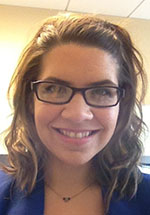 |
Michelle Birkett (Medical Social Sciences) Birkett@northwestern.edu “Understanding the Social Context of Online Relationships for LGBT Youth, and Implications for Intervention” Understanding the social networks of LGBT youth can have strong implications for both targets and methods of intervention, however, little is known about the social relationships of LGBT youth. In addition, although online networks may be particularly important to LGBT youth as they are often isolated and have low support resources in their everyday lives, online networks little is known about the support received of peer messages about health behavior. The longterm goal of this research is to increase understanding of the online social networks of LGBT youth and to understand how these online social networks may be useful for intervention, particularly interventions around healthy relationships and sexual behaviors. Participants for this research will come from the 246 individuals enrolled in the longest running longitudinal cohort study of LGBT youth ever conducted. |
|
|
Jeremy Birnholtz (Communication Studies)
“Seeing and Being Seen: Architecture, Visibility, and Social/ Sexual Encounters Using Location Aware Mobile Apps” |
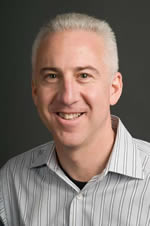 |
Steven Epstein (Sociology / the Humanities) S-epstein@northwestern.edu “Sexual Health as Buzzword” Graduate student research assistants: In recent decades the idea of “sexual health” has gone from obscurity to ubiquity. The explosion of discourses, practices, and products that reference this goal can be traced through many of the usual markers of institutionalization in the worlds of public health and biomedicine, including the birth of journals, research centers, professional associations, and training programs around the world. Yet the convergence around the term masks a remarkable diversity of scientific, political, economic, and cultural agendas. Through an analysis of both emergence and dispersion, I am investigating the contexts in which the recent emphasis on sexual health has arisen and the consequences of attempts to lay claim to it. My findings also provide insight into the character and functions of buzzwords, and I suggest steps toward the development of “buzzword studies.” |
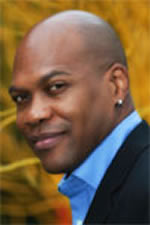 |
E. Patrick Johnson (Performance Studies / African American Studies) E-Johnson10@northwestern.edu “Honeypot: Black Lesbians of the South – An Oral History” This study focuses on the life histories of African American lesbians who were born, reared, and continue to reside in the U.S. South. The oral histories of these particular subjects simultaneously illuminate multiple identities-racial, sexual, gender, and class-within a region where such identity markers have historically positioned one on the margins of society. The oral narratives of the subjects of this study raise larger questions regarding identity formation, community building, and power relations as they are negotiated within the context of Southern history. The purpose of this research is multifold: 1) to fill a void in the historical accounts of racialized sexual minorities in the U.S. South; 2) to call into question the construction of the South as absent of thriving black lesbian communities; 3) to account for the ways that black lesbians negotiate their sexual, gender, class and racial identity with their southern cultural and religious identity; and, 4) to highlight the ways in which Southern black lesbians’ lives diverge from those of black gay southerners. |
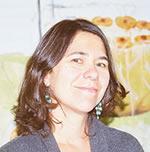 |
Sarah Rodriguez (Medical Humanities & Bioethics) Srodriguez@northwestern.edu “A Surgical Cut on the Wife Repaired with an Extra Stitch for the Husband: Episiotomies, Episiotomy Repairs, and Ideas Regarding Heterosexual Sex, 1920-2006” Last year, I received a generous grant from the Sexualities Project at Northwestern to study episiotomy and episiotomy repair in the United States. I called my project “The Husband’s Stitch” because this was what some physicians, as well as lay people, called the extra or final stitch some physicians added when closing an episiotomy, done to supposedly tighten the wife’s vagina for the sexual benefit of the husband. Regardless of what the procedure did (or did not) do for male sexual response, many women were not fond of either the repair or the cut itself, and many women believed it made penetrative sexual activity after childbirth both more difficult and less enjoyable for them. I have examined standard obstetric medical texts and the materials regarding this procedure at the American College of Obstetricians and Gynecologists (ACOG) library. What I am interested in exploring this year, however, is the difference in discourse between obstetric nursing texts – written by and for a profession largely dominated by women – with obstetric medical texts – written by and for a profession largely dominated by men over the course of the twentieth century. Specifically: Were obstetric nursing texts more attentive to the implications for women’s sexual experience – not just regarding pain, but also enjoyment – following an episiotomy and an episiotomy repair? And was there a difference between how obstetric medical texts and obstetric nursing texts addressed the supposed sexual benefits of episiotomy and episiotomy repair for the women’s male partners? I intend, then, to add to my analysis of episiotomy and episiotomy repair as discussed in standard obstetric medical texts, published medical articles, and within materials I collected from ACOG, by comparing obstetric medical discourse with how this procedure and its repair were discussed within obstetric nursing, postpartum nursing, and nurse-‐‑midwifery texts. Underlying this study will be an analysis of medical and cultural normative ideas about male heterosexual pleasure, as I proposed last year, with the addition of an analysis of medical and cultural normative ideas about female heterosexual pleasure. |
2012-13
|
|
Jillana Enteen (Gender & Sexuality Studies) J-enteen@northwestern.edu “Medical Tourism to Thailand Reconstructed: From ‘Create Your Own Surgery’ to One-Click SRS.” Because the growth of modern medical travel has developed subsequent to the shift to internet as a travel information source, the internet serves as the primary repository for information concerning medical tourism, the travel to other countries for elective surgery procedures. Medical tourism websites are creating an industry involving thousands of Thais and Western visitors annually, yet one that has received scant academic scrutiny. The emergence of Thailand’s cosmetic surgery industry—specifically Sexual Reassignment Surgery (SRS)—opens doors for transnational flows of virtual consumers to be repositioned as physical bodies under the knife. As recently as December 2010, these sites required that customers craft their own surgeries, but now, even if a client writes directly to a surgeon at a particular clinic, a webmaster will vet this inquiry and the website’s brick and mortar clinic will never see the request. This study in the socio-economic politics of SRS forms the framework for larger cultural considerations of “trans”—transition, transnationalism, translation, and transaction—that occur through this process where a virtual surfer becomes a surgical body thousands of miles from home. Extending my earlier project, I will chart online marketing for cosmetic surgery over the period of December 2010-December 2013, three years time. The completion of this study and its accompanying interviews will enable me to assemble enough data to suggest connections that interweave several competing sex/gender regimes and their intersections from the reconstruction of SRS procedures offered to westerners through transnational tourism. |
|
|
E. Patrick Johnson (Performance Studies / African American Studies) E-johnson10@northwestern.edu “Honeypot: Black Lesbians of the South – An Oral History” This study focuses on the life histories of African American lesbians who were born, reared, and continue to reside in the U.S. South. The oral histories of these particular subjects simultaneously illuminate multiple identities-racial, sexual, gender, and class-within a region where such identity markers have historically positioned one on the margins of society. The oral narratives of the subjects of this study raise larger questions regarding identity formation, community building, and power relations as they are negotiated within the context of Southern history. The purpose of this research is multifold: 1) to fill a void in the historical accounts of racialized sexual minorities in the U.S. South; 2) to call into question the construction of the South as absent of thriving black lesbian communities; 3) to account for the ways that black lesbians negotiate their sexual, gender, class and racial identity with their southern cultural and religious identity; and,4) to highlight the ways in which Southern black lesbians’ lives diverge from those of black gay southerners. |
|
|
Sarah Rodriguez (Medical Humanities & Bioethics) Srodriguez@northwestern.edu “The Husband’s Stitch: Female Bodies, Male Sexuality, and Episiotomy Repair in the United States, 1950-2006” A ‘standard’ episiotomy repair sewed up the incision from the opening of the vagina toward the anus made by the physician, a cut made on women during childbirth to prevent undue tearing as the baby’s head came through. Episiotomies were very common in the hosipital deliveries beginning in the mid-twentieth through the early twenty-first centuries in the United States as many obstetricians and gynceologists believed a jagged tear was worse than a surgical cut. The repair of this cut was as common as the cut itself. However, physicians commonly sutured more than just the incision they made, believing both the episiotomy and the extra stitches to be beneficial. But for whom were the extra stitches beneficial? I propose to examine the medical and cultural history of episiotomy repair, with two purposes in mind. First, I am seeking to learn how physicians conceived of episiotomy repair as a surgery upon female bodies that ‘improved’ upon the vagina for heterosexual penetrative missionary position sex not for those with the tissue being cut and sewn, but for their male partners. Second, I am seeking to learn how this medical procedure both reflected and reinforced normative cultural ideas about male heterosexual pleasure as desirous for small and tight vaginas. |
|
|
Jackie Stevens (Political Science) Jacqueline-stevens@northwestern.edu “Remembered Sexual Intimacies and the Bona Fide Marriage in Immigration Proceedings” This project seeks to assess the technologies through which spousal immigration benefit procedures are performing the so-called “bona fide marriage.” Of particular interest are the marriage interview instruments probing memory about sexual activity, the spouse’s body, birth control, and the commemoration of events specific to the couple. The portion of the project for which I am submitting this proposal is for data collection and coding of 50 immigration files that include the digital video recordings of interviews of married couples by U.S. Citizenship and Immigration Services officials assessing the marriage’s validity; and question and answer data coded for married couples appearing on “The Newlywed Game” television show. At a time when state and federal laws restricting marriage to different-sex couples are receiving challenges for their putative unconstitutionality, and when state legislatures and queer communities are debating legislation for same-sex marriage, further knowledge of what Michel Foucault calls the “veridiction” of marriage, i.e., the criteria producing its apparent truthfulness or authenticity, is of great importance. Redacted transcripts from selected interviews will be scanned and posted online. The primary audience for this research is sexuality studies scholars as well as queer and immigrant publics seeking to educate as well as empower themselves with knowledge about state policies and practices that legally discriminate on the basis of sexuality, ethnicity and national origins. |
|
|
Dévora Grynspan (Global Health Studies) Devora@northwestern.edu Co-investigator: “Sexual Politics and HIV/AIDS in Contemporary Cuba” Leiner (1994) is the most current systematic study of the relationship between sexual politics in Cuba and official government efforts to control HIV/AIDS transmission. Over the past 15 years, some of the basic facts underlying that classic publication have changed dramatically. The government of Havana abandoned the logic of quarantine as a means to stop HIV/AIDS, became an unexpected champion in the fight against homophobia, and embarked on a multipronged strategy to improve the lives of all HIV+ Cubans. The demographics of the epidemic also changed. Today, 8 out of 10 HIV+ people in Cuba are men, and at least 6 are men that have sex with men (MSM), indicating current prevention efforts targeting MSM seem less effective than a decade ago. At the same time, 25% of AIDS-related deaths in 2010 in Cuba occurred in individuals not previously diagnosed as HIV-positive, while general sero-prevalence rates are slowly rising (Gorry 2011). Yet one extraordinary fact remains unchanged: despite severe economic constraints and more than a few policy mishaps, Cuba has one of the lowest rates of HIV/AIDS in the Western hemisphere. Our project, inspired by recent developments in the political ethnography of health (Kath 2010) and sexuality (Hamilton 2012), will explore the parallel development of Cuban sex education and HIV/AIDS prevention over the past two decades. We will document the evolution of official Cuban governmental policies on sexual diversity since the 1990s through a prism of the changing HIV/AIDS demographics on the island and Cuba’s unique public health approach to HIV/AIDS prevention and treatment. We argue that the current negative shift in the success of the Cuban HIV/AIDS intervention and treatment model may be due to a continued focus on standard public health programming coupled with an inadequate conceptualization of sexuality and a lack of focus on the interaction of sexual decision-making with politics and culture. Using historical reconstruction as a starting point, we will try to understand the role of the past, both as memory and as myth, in the design, implementation and reception of current policies shaping the experience of people living with HIV/AIDS in the island. Fieldwork for this project will take place in Cuba from September 2012 to August 2013. Our team includes professors from Northwestern University, the University of Delaware, the Tropical Medicine Institute (IPK), and Casa de las Américas. This project will be integrated into the Northwestern University Study Abroad Program on Public Health in Cuba, giving well-prepared students an opportunity to participate in actual research. |
2011-12
|
|
Marla Clayman (Department of Medicine) M-clayman@northwestern.edu Co-investigator: “An examination of cancer-related fertility concerns among gay, lesbian, and heterosexual cancer survivors” In recent years, there has been increasing emphasis on quality-of-life issues for cancer survivors. Yet only recently have the needs of the 70,000 adolescents and young adults (AYAs) between the ages of 15-40 diagnosed with cancer each year gained prominence. These cancer survivors may have specific needs, particular around oncofertility and oncosexuality – that is, the effects of cancer and its treatment on fertility, sexuality, and intimate relationships. There is abundant research that indicates that loss of fertility is very concerning for cancer survivors, as well as research that indicates concern about dating, relationships, and sexual intimacy. However, little, if any, of that research on oncofertility or oncosexuality has focused on the needs of gay and lesbian cancer survivors. As gay men and lesbians often need to grow their families in what have been considered non-traditional ways, including adoption or use of assisted reproductive technologies (ARTs), it is possible that gay men and lesbians have broader knowledge about and comfort with various ways to build a family as compared to their heterosexual counterparts. In addition, gay men and lesbians may also feel differently than heterosexuals toward the idea of being a biological parent. We propose to conduct interviews with cancer survivors, straight and gay, male and female, in order to determine to what extent gay and lesbian young adults who have experienced a fertility-threatening diagnosis or treatment differ, compared to their heterosexual counterparts, in their background knowledge and attitudes regarding achieving parenthood in the future compared to their heterosexual counterparts; in their concerns about cancer-related fertility; and in their communication with partners or potential partners about the possible effects of cancer on their fertility. |
|
|
Jillana Enteen (Gender & Sexuality Studies) J-enteen@northwestern.edu “TransNational Transitions: Medical Tourism to Thailand” The number of tourists visiting Thailand for reconstructive surgery has increased exponentially since 1997, when Thailand’s economy collapsed and new forms of income were sought. Many tourism websites broadened their focus to include medical tourism: the booming sex tourism industry is now accompanied by sex-change tourism. Yet Thai hospitals and clinics have, for decades, offered highly specialized, extremely advanced reconstructive surgery for much lower costs than almost any other nation worldwide. How and why has the marketing for this surgery only recently expanded to cater to Western clientele? This question—positioned at the intersections of transnational sexuality studies, “trans”/queer theory, and transnational cyberculture studies—provides the framework for this project. Thailand based tourist websites and hospitals and clinics now cater to western conceptions of sex and gender, marketing it as teleological with an endpoint in sexual reassignment surgery. While westerners remain the consumers, and Thailand supplies the labor, the supine bodies at stake have been reversed. Transnational communication is facilitated through the successful marketing of medical tourism, and, although western formulations need not shift this new positionality may provide opportunities for a revisiting of western assumptions and practices and their accompanying histories of consuming the orient. English language and culture are successfully deployed to attract westerners and capital to Thailand, and Thai culture has the opportunity to reach a broader audience. |
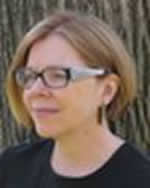 |
Wendy Espeland (Sociology) Wne741@northwestern.edu“The History of 10%: Social Science Measures and the Construction of Gay Identity” Collaborator: The emergence of modern LGBT communities and social movements in the U.S. in the second half of the 20th century is the result of a complex historical process in which homosexuality was transformed from private, stigmatized behavior to the basis of positive personal and social identities. I propose to conduct research jointly with Stuart Michaels, a sociologist at the NORC at the University of Chicago, an expert on survey research and sexuality,that examines the role played by social scientists’ efforts to measure sexual behavior and its affects on the modern gay rights movement and the development of gay and lesbian identity politics. Beginning with Alfred Kinsey’s pioneering work in 1948 and continuing through the mid-1990s, measures and criticism of measures of sexual practice helped LBGT people understand and defend themselves as members of a “minority group.” These emerging conceptions of homosexuality as a shared identity had an enormous effect on how individuals thought about themselves and their political and legal struggles, and laid the groundwork for a new politics grounded in people’s identities as homosexuals. The authority of social science was mobilized and challenged in varied and sometimes contradictory ways by constituencies on all sides in struggles over the meanings of homosexuality and LBGT rights. Based mainly on research at three main archives that will be supplemented with interviews with key activists, we will trace the trajectory and significance of measures of sexual practices in shaping our understandings of sexual identity in politics, law, and culture. |
|
|
Sarah Rodriguez (Medical Humanities & Bioethics) Srodriguez@northwestern.edu “Female Genital Surgeries, the Myth of the Vaginal Orgasm, and the Medical Enforcement of Heteronormativity in the United States, 1905 to the Present” Recently, both the popular media and scholars have looked at the apparent rise in interest for female genital cosmetic surgeries in the United States. The surgeries emphasize penetrative, missionary position sex, though many studies have revealed that it is uncommon for women to reach orgasm in this position because of lack of stimulation of their external genitals, especially of their clitoris. Though it appears not many women have had these surgeries, the attention they have received in both the popular and academic literature arise from a larger tension: what are sexually healthy female genitals and what is the ‘normal’ means to female orgasm? This question has a significant, and understudied, historical basis in medical perceptions of the clitoris and vagina. I propose to frame current ideas about how sexually healthy female genitals are medically defined by exploring two interwoven twentieth century narratives about the clitoris and the vagina: 1) the practice of a physician who performed sexual enhancement surgeries on the female genitalia in the 1960s and 1970s based in part on ‘new’ information regarding the clitoris and the vagina presented by William Masters and Virginia Johnson, and 2) the representations of the clitoris and the vagina within gynecology and anatomy texts since the beginning of the twentieth century. By doing so, I will explore the beginnings of this larger tension, brought forth in discussions about current female cosmetic genital surgeries, between knowledge about the clitoris and the medical enforcement of heteronormativity. |
|
|
Mary Weismantel (Anthropology / Gender & Sexuality Studies) Mjweis@gmail.com “The Modern Life of Ancient Things: The Moche Sex Pots” The Moche sex pots are explicit ceramic sculptures of sex organs and sex acts from PreColumbian Peru. Their presence in the contemporary world creates constantly changing arenas of contestation in which actors may try to coax the pots’ enigmatic imagery into familiar sexual paradigms, use them to buttress visions of sexual utopias, or simply recognize their radical capacity to queer the known. These processes illuminate the cultural politics and sexual cultures of their moment; furthermore, each actor and each new historical period brings new perspectives to the past, enriching our ongoing dialogue with the enigmatic interlocutors who created the pots, and expanding our knowledge of human sexual diversity. |
2010-11
|
|
Héctor Carrillo (Sociology / Gender & Sexuality Studies) Hector@northwestern.edu “Project Teal: Sexual Fluidity among Heterosexually-Identified Men: Sexual Behavior and Health Outcomes” Project director: Amanda Hoffman (a-hoffman@northwestern.edu) Graduate student research assistants: Undergraduate student research assistant: Prof. Carrillo is investigating the sexual identities of men who participate in bisexual behaviors but self-identify as straight or heterosexual. This study is also analyzing the health-related implications of these men’s sexual behaviors, in terms of potential risks for themselves and for their male and female sexual partners. Preliminary findings have been presented at the Annual Meeting of the Pacific Sociological Association in March 2011, and at the Annual Meeting of the International Academy of Sex Research in August 2011. |
|
|
Steven Epstein (Sociology / the Humanities) S-epstein@northwestern.edu “Sexual Health as Buzzword” Graduate student research assistants: In this study of “The Biopolitics of Sexual Health,” Epstein (in collaboration with Prof. Laura Mamo at San Francisco State University) is constructing a genealogy of the modern concept of sexual health and tracing its multiple and competing meanings in social space. This work examines the competition among a wide array of individuals and organizations, including health professionals, community-based activists, foundations, transnational health agencies, and the pharmaceutical industry, to define and promote a sexual health agenda. A particular focus is the role of gay health advocates, both in challenging narrow definitions of sexual health and in calling attention to health disparities by sexual orientation. A second focus concerns the “sexualization of cancer,” tracing the impact of new etiological linkages that have been established between sexually transmissible agents and specific forms of cancer. Preliminary results were presented at the annual meeting of the Society for Social Studies of Science in November 2011 and at the annual meeting of the American Sociological Association in August 2012. |

